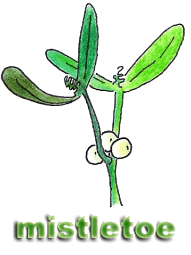Christmas 'Did You Know?'
Christmas time is here again and we want to grab your attention to this article on Christmas. It not only is interesting, but also has tons about the true meaning of Christmas. The true meaning of Christmas is sometimes crowded out by the frenzy of buying and gift giving. How can we educate our children the true meaning of Christmas, without taking away all the secular revelry?Our top 10 facts about Christmas are sure to help you get a better understanding of Christmas. We mean to let everyone know more about Christmas after reading this!
1. Jesus Christ
First and foremost, the birth of Jesus Christ is true meaning of Christmas Christmas was first celebrated as a proper day, on the 25th December, in the 5th century, in the time of the Roman Emperor Constantine.2. Christmas Carols
The custom of carolling through the streets originated in England when rich businessmen hired singers to accompany their strolls. The tradition quickly extended to all types of choruses. "We Wish You a Merry Christmas" was definitely on everyone's list.3. Christmas Cards
In 1843, the first Christmas card was printed in England for Sir Henry Cole. He was busy man who wanted to save time in his own Christmas letters, but was also interested in encouraging the expansion of the postal system. 900 copies of the card were sold at one shilling each.
4. Christmas Tree
In the 16th century Martin Luther, a German preacher, was the first to bring a Christmas tree into a house. A story is told that, one night before Christmas, he was walking through the forest and looked up to see the stars shining through the tree branches. It was so beautiful, that he went home and told his children that it reminded him of Jesus, who left the stars of heaven to come to earth at Christmas.5. Christmas Gifts
One of the main reasons we have the custom of giving and receiving presents at Christmas, is to remind us of the presents given to Jesus by the three Wise Men: Frankincense, Gold and Myrrh. Frankincense was a perfume used in Jewish worship and, as a gift, it showed that people would worship Jesus. Gold was associated with Kings and Christians believe that Jesus is the King of Kings. Myrrh was a perfume that was put on dead bodies to make them smell nice and, as a gift, it showed that Jesus would suffer and die.6. Santa Claus
Does Santa exist? In the 16th Century in Europe, the stories and traditions about St. Nicholas became very unpopular. But someone had to deliver presents to children at Christmas, so in the U.K., he became 'Father Christmas', a character from old children?s stories; in France, he was then known as 'Père Nöel'; in Germany, the Christ Child or 'Christ Kind. In the early U.S.A. his name was 'Kris Kringle'. Later, Dutch settlers in the USA took the old stories of St. Nicholas with them and Kris Kringle became 'Sinter Klass' or as we now say 'Santa Claus'!
7. Mistletoe
Mistletoe is a plant that grows on willow and apple trees (and in garden centres!). The practice of hanging it in the house goes back to the times of the ancient Druids. It is supposed to possess mystical powers which bring good luck to the household and ward off evil spirits. It was also used as a sign of friendship and that's where the custom of kissing under Mistletoe comes from!8. Xmas
Xmas can also mean Christmas! The name 'Christmas' comes from the Mass of Christ (or Jesus). A Mass service is where Christians remember that Jesus died for us and then came back to life. The 'Christ-Mass' service was the only one that was allowed to take place after sunset, So we get the name Christ-Mass, shortened to Christmas. Christmas is also sometimes called Xmas. Some people don't think it's correct to call Christmas 'Xmas' as that takes the 'Christ' (Jesus) out of Christmas. But that is not quite right! In the Greek language and alphabet, the letter that looks like an X is pronounced 'Christos' and means 'Christ'!9. Christmas Stamps
In 1937, the first postage stamp to commemorate Christmas was issued in Austria.10. 'The Lamb of God'
Two thousand years ago the King of Kings was born.'The Lamb of God' later made to feel the thorn,
If his words are accepted and not scorned,
They will make us all reborn.
We hope that what we have stated here on Christmas is indeed inspiring to you, the reader.
Have a very Merry Christmas
Obtížnější slovíčka z tohoto článku si můžete nastudovat a procvičit zde:
Okruhy slovní zásoby: Slovíčka z článků: Christmas 'Did You Know?'

 Help for English
Help for English









